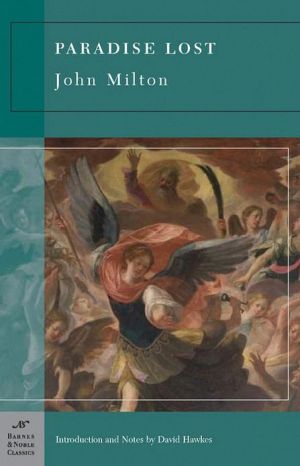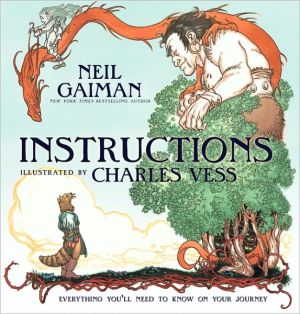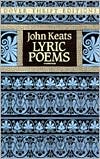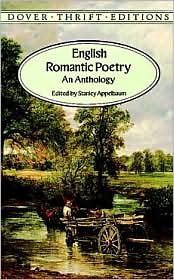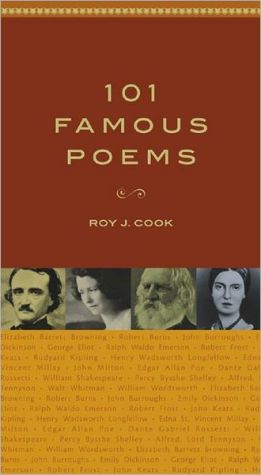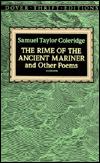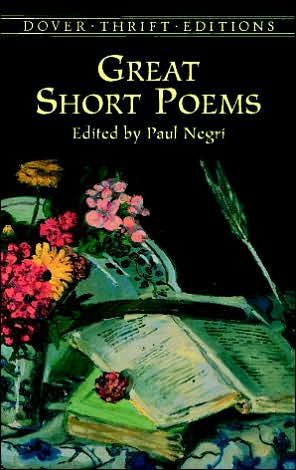The World's Wife
Be terrified.\ It's you I love,\ perfect man,\ Greek God, my own;\ but I know you'll go,\ betray me, stray\ from home.\ So better by far for\ me if you were stone.\ —from "Medusa"\ Stunningly original and haunting, the voices of Mrs. Midas, Queen Kong, and Frau Freud, to say nothing of the Devil's Wife herself, startle us with their wit, imagination, and incisiveness in this collection of poems written from the perspectives of the wives, sisters, or girlfris of famous — and infamous — male...
Search in google:
Be terrified. It's you I love, perfect man, Greek God, my own; but I know you'll go, betray me, strayfrom home.So better by far for me if you were stone.—from "Medusa"Stunningly original and haunting, the voices of Mrs. Midas, Queen Kong, and Frau Freud, to say nothing of the Devil's Wife herself, startle us with their wit, imagination, and incisiveness in this collection of poems written from the perspectives of the wives, sisters, or girlfris of famous — and infamous — male personages. Carol Ann Duffy is a master at drawing on myth and history, then subverting them in a vivid and surprising way to create poems that have the pull of the past and the crack of the contemporary.Publishers WeeklyThe voices of Mrs. Tiresias, Mrs. Faust, Mrs. Quasimodo and other wives wittily recast myth and history from a woman's point of view in the pages of Manchester-based Duffy's fifth collection. Self-contained Penelope is not waiting for her Odysseus; frustrated Mrs. Sisyphus is married to a workaholic; Pygmalion's statue, tired of being pestered by her groping suitor, "changed tack/ grew warm, like candle wax/ kissed back"--and after sex gets dumped. But while Duffy's revisionist dramatic monologues are rife with clever twists, this material has been well mined by such poets as Alta, Margaret Atwood and Alicia Ostriker. Even references to Viagra, sheep-cloning and Monica Lewinsky seem an updating of Transformations (1971), Anne Sexton's deadpan fairy tales studded with cultural references, with the poems trapped in a similarly polarized conception of gender relations. Thus Thetis is brutalized in a new way each time she changes form--man is cross-bow to her albatross, charmer to her snake, fisherman to her mermaid--and to Queen Herod, the Christ child is simply a threat to her infant girl: he's "The Wolf. The Rip. The Rake. The Rat./The Heartbreaker. The Ladykiller. Mr. Right." The luckiest in love is Mrs. Beast, married to a devoted creature that's hung like a mule, and just as hardworking: "And if his snot and trotters fouled/ my damask sheets, why, then, he'd wash them. Twice." The flippant tone elicits chuckles, but one imagines these characters would've come a longer way by now, baby. (Apr.) FYI: Duffy's anthology Time's Tidings: Greeting the 21st Century includes 50 contemporary poets, each of whom is represented by a poem of his or her own on "time," and by a favorite poem on the same subject. (Anvil [Dufour, dist.], $18.95 paper 160p ISBN 0-85646-313-2). Copyright 2000 Cahners Business Information.\|
\ \ \ \ \ Chapter One\ \ \ Little Red-Cap\ \ \ At childhood's end, the houses petered out\ into playing fields, the factory, allotments\ kept, like mistresses, by kneeling married men,\ the silent railway line, the hermit's caravan,\ till you came at last to the edge of the woods.\ It was there that I first clapped eyes on the wolf.\ He stood in a clearing, reading his verse out loud\ in his wolfy drawl, a paperback in his hairy paw,\ red wine staining his bearded jaw. What big ears\ he had! What big eyes he had! What teeth!\ In the interval, I made quite sure he spotted me,\ sweet sixteen, never been, babe, waif, and bought me a drink,\ my first. You might ask why. Here's why. Poetry.\ The wolf, I knew, would lead me deep into the woods,\ away from home, to a dark tangled thorny place\ lit by the eyes of owls. I crawled in his wake,\ my stockings ripped to shreds, scraps of red from my blazer\ snagged on twig and branch, murder clues. I lost both shoes\ but got there, wolf's lair, better beware. Lesson one that\ night,\ breath of the wolf in my ear, was the love poem.\ I clung till dawn to his thrashing fur, for\ what little girl doesn't dearly love a wolf?\ Then I slid from between his heavy matted paws\ and went in search of a living bird — white dove —\ which flew, straight, from my hands to his open mouth.\ One bite, dead. How nice, breakfast in bed, he said,\ licking his chops.Assoon as he slept, I crept to the back\ of the lair, where a whole wall was crimson, gold, aglow with\ books.\ Words, words were truly alive on the tongue, in the head,\ warm, beating, frantic, winged; music and blood.\ But then I was young — and it took ten years\ in the woods to tell that a mushroom\ stoppers the mouth of a buried corpse, that birds\ are the uttered thought of trees, that a greying wolf\ howls the same old song at the moon, year in, year out,\ season after season, same rhyme, same reason. I took an axe\ to a willow to see how it wept. I took an axe to a salmon\ to see how it leapt. I took an axe to the wolf\ as he slept, one chop, scrotum to throat, and saw\ the glistening, virgin white of my grandmother's bones.\ I filled his old belly with stones. I stitched him up.\ Out of the forest I come with my flowers, singing, all alone.\ \ \ Thetis\ \ \ I shrank myself\ to the size of a bird in the hand\ of a man.\ Sweet, sweet, was the small song\ that I sang,\ till I felt the squeeze of his fist.\ Then I did this:\ shouldered the cross of an albatross\ up the hill of the sky.\ Why? To follow a ship.\ But I felt my wings\ clipped by the squint of a crossbow's eye.\ So I shopped for a suitable shape.\ Size 8. Snake.\ Big Mistake.\ Coiled in my charmer's lap,\ I felt the grasp of his strangler's clasp\ at my nape.\ Next I was roar, claw, 50 lb paw,\ jungle-floored, meateater, raw,\ a zebra's gore\ in my lower jaw.\ But my gold eye saw\ the guy in the grass with the gun. Twelve-bore.\ I sank through the floor of the earth\ to swim in the sea.\ Mermaid, me, big fish, eel, dolphin,\ whale, the ocean's opera singer.\ Over the waves the fisherman came\ with his hook and his line and his sinker.\ I changed my tune\ to racoon, skunk, stoat,\ to weasel, ferret, bat, mink, rat.\ The taxidermist sharpened his knives.\ I smelled the stink of formaldehyde.\ Stuff that.\ I was wind, I was gas,\ I was all hot air, trailed\ clouds for hair.\ I scrawled my name with a hurricane,\ when out of the blue\ roared a fighter plane.\ Then my tongue was flame\ and my kisses burned,\ but the groom wore asbestos.\ So I changed, I learned,\ turned inside out — or that's\ how it felt when the child burst out.\ \ \ Queen Herod\ \ \ Ice in the trees.\ Three Queens at the Palace gates,\ dressed in furs, accented;\ their several sweating, panting beasts,\ laden for a long, hard trek,\ following the guide and boy to the stables;\ courteous, confident; oh, and with gifts\ for the King and Queen of here — Herod, me —\ in exchange for sunken baths, curtained beds,\ fruit, the best of meat and wine,\ dancers, music, talk —\ as it turned out to be,\ with everyone fast asleep, save me,\ those vivid three —\ till bitter dawn.\ They were wise. Older than I.\ They knew what they knew.\ Once drunken Herod's head went back,\ they asked to see her,\ fast asleep in her crib,\ my little child.\ Silver and gold,\ the loose change of herself,\ glowed in the soft bowl of her face.\ Grace, said the tallest Queen.\ Strength, said the Queen with the hennaed hands.\ The black Queen\ made a tiny starfish of my daughter's fist,\ said Happiness; then stared at me,\ Queen to Queen, with insolent lust.\ Watch, they said, for a star in the East —\ a new star\ pierced through the night like a nail\ It means he's here, alive, new-born.\ Who? Him. The Husband. Hero. Hunk.\ The Boy Next Door. The Paramour. The Je t'adore.\ The Marrying Kind. Adulterer. Bigamist.\ The Wolf. The Rip. The Rake. The Rat.\ The Heartbreaker. The Ladykiller. Mr Right.\ My baby stirred,\ suckled the empty air for milk,\ till I knelt\ and the black Queen scooped out my breast,\ the left, guiding it down\ to the infant's mouth.\ No man, I swore,\ will make her shed one tear.\ A peacock screamed outside.\ Afterwards, it seemed like a dream.\ The pungent camels\ kneeling in the snow,\ the guide's rough shout\ as he clapped his leather gloves,\ hawked, spat, snatched\ the smoky jug of mead\ from the chittering maid —\ she was twelve, thirteen.\ I watched each turbaned Queen\ rise like a god on the back of her beast.\ And splayed that night\ below Herod's fusty bulk,\ I saw the fierce eyes of the black Queen\ flash again, felt her urgent warnings scald\ my ear. Watch for a star, a star.\ It means he's here ...\ Some swaggering lad to break her heart,\ some wincing Prince to take her name away\ and give a ring, a nothing, nowt in gold.\ I sent for the Chief of Staff,\ a mountain man\ with a red scar, like a tick\ to the mean stare of his eye.\ Take men and horses,\ knives, swords, cutlasses.\ Ride East from here\ and kill each mother's son.\ Do it. Spare not one.\ The midnight hour. The chattering stars\ shivered in a nervous sky.\ Orion to the South\ who knew the score, who'd seen,\ not seen, then seen it all before;\ the yapping Dog Star at his heels.\ High up in the West\ a studded, diamond W.\ And then, as prophesied,\ blatant, brazen, buoyant in the East —\ and blue —\ The Boyfriend's Star.\ We do our best,\ we Queens, we mothers,\ mothers of Queens.\ We wade through blood\ for our sleeping girls.\ We have daggers for eyes.\ Behind our lullabies,\ the hooves of terrible horses\ thunder and drum.\ \ \ Mrs Midas\ \ \ It was late September. I'd just poured a glass of wine, begun\ to unwind, while the vegetables cooked. The kitchen\ filled with the smell of itself, relaxed, its steamy breath\ gently blanching the windows. So I opened one,\ then with my fingers wiped the other's glass like a brow.\ He was standing under the pear tree snapping a twig.\ Now the garden was long and the visibility poor, the way\ the dark of the ground seems to drink the light of the sky,\ but that twig in his hand was gold. And then he plucked\ a pear from a branch — we grew Fondante d'Automne —\ and it sat in his palm like a light bulb. On.\ I thought to myself, Is he putting fairy lights in the tree?\ He came into the house. The doorknobs gleamed.\ He drew the blinds. You know the mind; I thought of\ the Field of the Cloth of Gold and of Miss Macready.\ He sat in that chair like a king on a burnished throne.\ The look on his face was strange, wild, vain. I said,\ What in the name of God is going on? He started to laugh.\ I served up the meal. For starters, corn on the cob.\ Within seconds he was spitting out the teeth of the rich.\ He toyed with his spoon, then mine, then with the knives, the\ forks.\ He asked where was the wine. I poured with a shaking hand,\ a fragrant, bone-dry white from Italy, then watched\ as he picked up the glass, goblet, golden chalice, drank.\ It was then that I started to scream. He sank to his knees.\ After we'd both calmed down, I finished the wine\ on my own, hearing him out. I made him sit\ on the other side of the room and keep his hands to himself.\ I locked the cat in the cellar. I moved the phone.\ The toilet I didn't mind. I couldn't believe my ears:\ how he'd had a wish. Look, we all have wishes; granted.\ But who has wishes granted? Him. Do you know about gold?\ It feeds no one; aurum, soft, untarnishable; slakes\ no thirst. He tried to light a cigarette; I gazed, entranced,\ as the blue flame played on its luteous stem. At least,\ I said, you'll be able to give up smoking for good.\ Separate beds. In fact, I put a chair against my door,\ near petrified. He was below, turning the spare room\ into the tomb of Tutankhamun. You see, we were passionate\ then,\ in those halcyon days; unwrapping each other, rapidly,\ like presents, fast food. But now I feared his honeyed\ embrace,\ the kiss that would turn my lips to a work of art.\ And who, when it comes to the crunch, can live\ with a heart of gold? That night, I dreamt I bore\ his child, its perfect ore limbs, its little tongue\ like a precious latch, its amber eyes\ holding their pupils like flies. My dream-milk\ burned in my breasts. I woke to the streaming sun.\ So he had to move out. We'd a caravan\ in the wilds, in a glade of its own. I drove him up\ under cover of dark. He sat in the back.\ And then I came home, the woman who married the fool\ who wished for gold. At first I visited, odd times,\ parking the car a good way off, then walking.\ You knew you were getting close. Golden trout\ on the grass. One day, a hare hung from a larch,\ a beautiful lemon mistake. And then his footprints,\ glistening next to the river's path. He was thin,\ delirious; hearing, he said, the music of Pan\ from the woods. Listen. That was the last straw.\ What gets me now is not the idiocy or greed\ but lack of thought for me. Pure selfishness. I sold\ the contents of the house and came down here.\ I think of him in certain lights, dawn, late afternoon,\ and once a bowl of apples stopped me dead. I miss most,\ even now, his hands, his warm hands on my skin, his touch.\ \ \ from Mrs Tiresias\ \ \ All I know is this:\ he went out for his walk a man\ and came home female.\ Out the back gate with his stick,\ the dog;\ wearing his gardening kecks,\ an open-necked shirt,\ and a jacket in Harris tweed I'd patched at the elbows myself.\ Whistling.\ He liked to hear\ the first cuckoo of spring\ then write to The Times.\ I'd usually heard it\ days before him\ but I never let on.\ I'd heard one that morning\ while he was asleep;\ just as I heard,\ at about 6 p.m.,\ a faint sneer of thunder up in the woods\ and felt\ a sudden heat\ at the back of my knees.\ He was late getting back.\ I was brushing my hair at the mirror\ and running a bath\ when a face\ swam into view\ next to my own.\ The eyes were the same.\ But in the shocking V of the shirt were breasts.\ When he uttered my name in his woman's voice I passed out.\ * * *\ Life has to go on.\ I put it about that he was a twin\ and this was his sister\ come down to live\ while he himself\ was working abroad.\ And at first I tried to be kind;\ blow-drying his hair till he learnt to do it himself,\ lending him clothes till he started to shop for his own,\ sisterly, holding his soft new shape in my arms all night.\ Then he started his period.\ One week in bed.\ Two doctors in.\ Three painkillers four times a day.\ And later\ a letter\ to the powers that be\ demanding full-paid menstrual leave twelve weeks per year.\ I see him still,\ his selfish pale face peering at the moon\ through the bathroom window.\ The curse, he said, the curse.\ Don't kiss me in public,\ he snapped the next day,\ I don't want folk getting the wrong idea.\ It got worse.\ * * *\ After the split I would glimpse him\ out and about,\ entering glitzy restaurants\ on the arms of powerful men —\ though I knew for sure\ there'd be nothing of that\ going on\ if he had his way —\ or on TV\ telling the women out there\ how, as a woman himself,\ he knew how we felt.\ His flirt's smile.\ The one thing he never got right\ was the voice.\ A cling peach slithering out from its tin.\ I gritted my teeth.\ * * *\ And this is my lover, I said,\ the one time we met\ at a glittering ball\ under the lights,\ among tinkling glass,\ and watched the way he stared\ at her violet eyes,\ at the blaze of her skin,\ at the slow caress of her hand on the back of my neck;\ and saw him picture\ her bite,\ her bite at the fruit of my lips,\ and hear\ my red wet cry in the night\ as she shook his hand\ saying How do you do;\ and I noticed then his hands, her hands,\ the clash of their sparkling rings and their painted nails.\ \ \ Pilate's Wife\ \ \ Firstly, his hands — a woman's. Softer than mine,\ with pearly nails, like shells from Galilee.\ Indolent hands. Camp hands that clapped for grapes.\ Their pale, mothy touch made me flinch. Pontius.\ I longed for Rome, home, someone else. When the Nazarene\ entered Jerusalem, my maid and I crept out,\ bored stiff, disguised, and joined the frenzied crowd.\ I tripped, clutched the bridle of an ass, looked up\ and there he was. His face? Ugly. Talented.\ He looked at me. I mean he looked at me. My God.\ His eyes were eyes to die for. Then he was gone,\ his rough men shouldering a pathway to the gates.\ The night before his trial, I dreamt of him.\ His brown hands touched me. Then it hurt.\ Then blood. I saw that each tough palm was skewered\ by a nail. I woke up, sweating, sexual, terrified.\ Leave him alone. I sent a warning note, then quickly dressed.\ When I arrived, the Nazarene was crowned with thorns.\ The crowd was baying for Barabbas. Pilate saw me,\ looked away, then carefully turned up his sleeves\ and slowly washed his useless, perfumed hands.\ They seized the prophet then and dragged him out,\ up to the Place of Skulls. My maid knows all the rest.\ Was he God? Of course not. Pilate believed he was.\ \ \ Mrs Aesop\ \ \ By Christ, he could bore for Purgatory. He was small,\ didn't prepossess. So he tried to impress. Dead men,\ Mrs Aesop, he'd say, tell no tales. Well, let me tell you now\ that the bird in his hand shat on his sleeve,\ never mind the two worth less in the bush. Tedious.\ Going out was worst. He'd stand at our gate, look, then leap;\ scour the hedgerows for a shy mouse, the fields\ for a sly fox, the sky for one particular swallow\ that couldn't make a summer. The jackdaw, according to\ him,\ envied the eagle. Donkeys would, on the whole, prefer to be\ lions.\ On one appalling evening stroll, we passed an old hare\ snoozing in a ditch — he stopped and made a note —\ and then, about a mile further on, a tortoise, somebody's pet,\ creeping, slow as marriage, up the road. Slow\ but certain, Mrs Aesop, wins the race. Asshole.\ What race? What sour grapes? What silk purse,\ sow's ear, dog in a manger, what big fish? Some days\ I could barely keep awake as the story droned on\ towards the moral of itself. Action, Mrs A., speaks louder\ than words. And that's another thing, the sex\ was diabolical. I gave him a fable one night\ about a little cock that wouldn't crow, a razor-sharp axe\ with a heart blacker than the pot that called the kettle.\ I'll cut off your tail, all right, I said, to save my face.\ That shut him up. I laughed last, longest.\ \ \ Mrs Darwin\ \ \ 7 April 1852.\ Went to the Zoo.\ I said to Him —\ Something about that Chimpanzee over there reminds me of\ you.
Little Red-Cap3 Thetis5 Queen Herod7 Mrs Midas11 from Mrs Tiresias14 Pilate's Wife18 Mrs Aesop19 Mrs Darwin20 Mrs Sisyphus21 Mrs Faust23 Delilah28 Anne Hathaway30 Queen Kong31 Mrs Quasimodo34 Medusa40 The Devil's Wife42 Circe47 Mrs Lazarus49 Pygmalion's Bride51 Mrs Rip Van Winkle53 MrsIcarus54 Frau Freud55 Salome56 Eurydice58 The Kray Sisters63 Elvis's Twin Sister66 Pope Joan68 Penelope70 Mrs Beast72 Demeter76 Permissions Acknowledgements79
\ From the Publisher"[Duffy] offers us the past as it could have been. . . . [Her] project recalls the poems of the Americans Ai and Pamela White Hadas, but the élan of this volume sets it apart, the characters (and poems) triumphant."—The New Yorker\ "Duffy is one of the freshest and bravest talents to emerge in British poetry—any poetry—for years."—Eavan Boland, The Independent on Sunday (London)\ "These thirty poems vibrate with intense colloquialisms, physicality, energy, freshness, and cheek. . . . They leap off the page even in a silent reading. . . . The best are inventive, subversive, and written with great rhythmical and rhyming dash."—Anthony Thwaite, The Sunday Telegraph (London)\ \ \ \ \ \ Publishers Weekly - Publisher's Weekly\ The voices of Mrs. Tiresias, Mrs. Faust, Mrs. Quasimodo and other wives wittily recast myth and history from a woman's point of view in the pages of Manchester-based Duffy's fifth collection. Self-contained Penelope is not waiting for her Odysseus; frustrated Mrs. Sisyphus is married to a workaholic; Pygmalion's statue, tired of being pestered by her groping suitor, "changed tack/ grew warm, like candle wax/ kissed back"--and after sex gets dumped. But while Duffy's revisionist dramatic monologues are rife with clever twists, this material has been well mined by such poets as Alta, Margaret Atwood and Alicia Ostriker. Even references to Viagra, sheep-cloning and Monica Lewinsky seem an updating of Transformations (1971), Anne Sexton's deadpan fairy tales studded with cultural references, with the poems trapped in a similarly polarized conception of gender relations. Thus Thetis is brutalized in a new way each time she changes form--man is cross-bow to her albatross, charmer to her snake, fisherman to her mermaid--and to Queen Herod, the Christ child is simply a threat to her infant girl: he's "The Wolf. The Rip. The Rake. The Rat./The Heartbreaker. The Ladykiller. Mr. Right." The luckiest in love is Mrs. Beast, married to a devoted creature that's hung like a mule, and just as hardworking: "And if his snot and trotters fouled/ my damask sheets, why, then, he'd wash them. Twice." The flippant tone elicits chuckles, but one imagines these characters would've come a longer way by now, baby. (Apr.) FYI: Duffy's anthology Time's Tidings: Greeting the 21st Century includes 50 contemporary poets, each of whom is represented by a poem of his or her own on "time," and by a favorite poem on the same subject. (Anvil [Dufour, dist.], $18.95 paper 160p ISBN 0-85646-313-2). Copyright 2000 Cahners Business Information.\|\ \ \ The New YorkerDuffy's project recalls the poems of the Americans Ai and Pamela White Hadas, but the élan of this volume sets it apart, the characters (and poems) triumphant.\ \ \ \ \ Kirkus ReviewsIn her fifth volume of poetry, British poet Duffy presents to us the world of the liminal wife. Here we do not find annals of Victoria or Medea or Eleanor Roosevelt, but rather catch an imaginative glimpse into the lives of real and mythic women whose stories were not exactly their own: Mrs. Faust, Queen Herod, and Frau Freud, to name a few. Each of the 30 or so women featured in Duffy's collection regales us with her side of her famous partner's story, and the result is often insightful and always entertaining. Duffy's verse is at once tight and resonant, her language colloquial and engaging, her rhymes refreshing. While a great strength of the volume is its thematic unity, these poems are better swallowed in short snatches, for the tone of the wife's lament is often so consistent that the uniqueness of each woman's plight gets debased. For instance, Mrs. Tiresias's dilemma ("All I know is this: / he went out for his walk a man / and came home female") differs quite a bit from Eurydice's discomfort in hell ("the one place you'd think a girl would be safe / from the kind of a man who follows her round / writing poems"), yet they come to us in a strikingly similar voice. Reminiscent of Sexton's Transformations (1971), these works take the plots of some classic tales and give them a wry, mod twist. For lovers of myth, or just a good tell, this dark and darkly comic volume has much to offer.\ \

